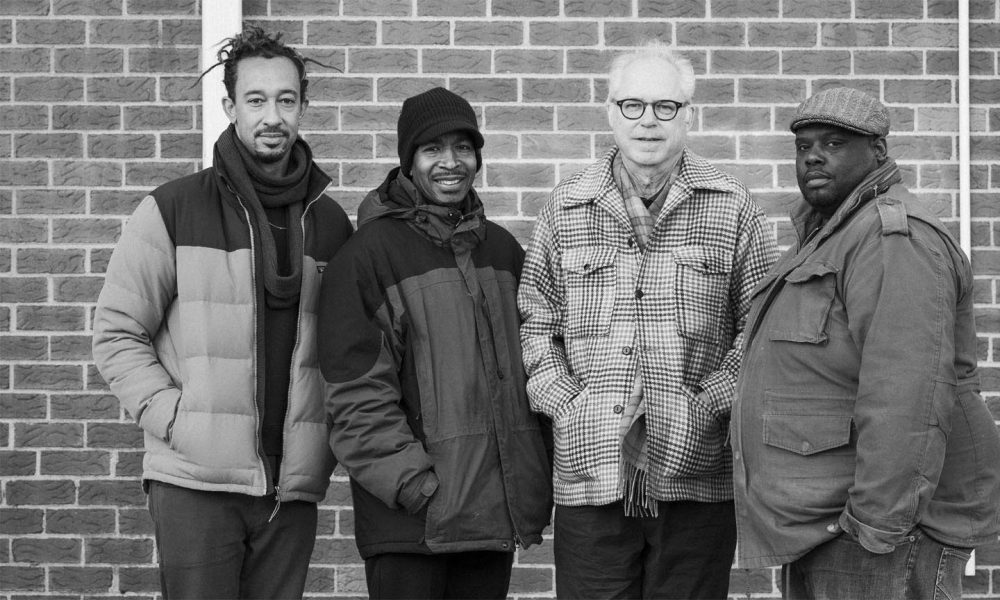Listen To Bill Frisell’s Playful New Track, ‘Holiday’
The track features on the acclaimed guitarist’s upcoming album, ‘Four’, due out on November 11.

Bill Frisell has released “Holiday,” a playful new track from the acclaimed guitarist’s forthcoming album Four, a stunning meditation on loss, renewal, and friendships that was produced by Lee Townsend and comes out November 11 on Blue Note.
The album convenes a new line-up of musical friends, independent spirits, and like minds with Gerald Clayton on piano, Johnathan Blake on drums, and longtime collaborator Greg Tardy on saxophone, clarinet, and bass clarinet.
The album’s first single “Waltz for Hal Willner” was a poignant tribute to Frisell’s dear friend, but Four also transmits joy, exuberance, and hope. A quirky, syncopated gesture, and feature for Blake, “Holiday” presents a compelling example of the album’s through line. “It’s just a few notes in the melody,” says Frisell. “There are these little signposts that we can hit together, but it’s pretty minimal information. It’s a structure — a jungle gym that we’re all climbing around.”
During the lockdown, like so many prolific artists, Frisell turned inward. “It was traumatic not to be with people,” he says, “so I picked up my guitar, and my guitar saved me.” For those months, he wrote stacks of melodies and compositional ideas. By the time he scheduled Four’s recording sessions, he’d amassed piles of notebooks filled with fragmented music.
Laying little more than a sketch of information before his fellow artists, Frisell encouraged a kind of spontaneous, cooperative orchestration. “Everyone had the information, but it was super open as far as who plays what when,” he says. “Without a bass, it was a little scary, but I wasn’t thinking so much about the instruments. It’s always more about the chemical reaction that’s going to happen.”
Across the recording, each artist’s expression emerges as equal parts melodic and textural. Strong, subtle choices establish the music’s depth of character from the first phrase. Their collective counterpoint shapeshifts, but they remain true to each song’s initial idea. Rarely does anyone grab the mic.
“Everyone is just jumping into it all together, and then you find this way of talking with each other,” says Frisell. “You listen to Miles Davis’ quintet and maybe Miles is taking a solo, but it’s the cooperative thing that blows your mind.”












